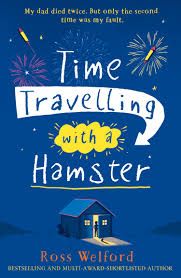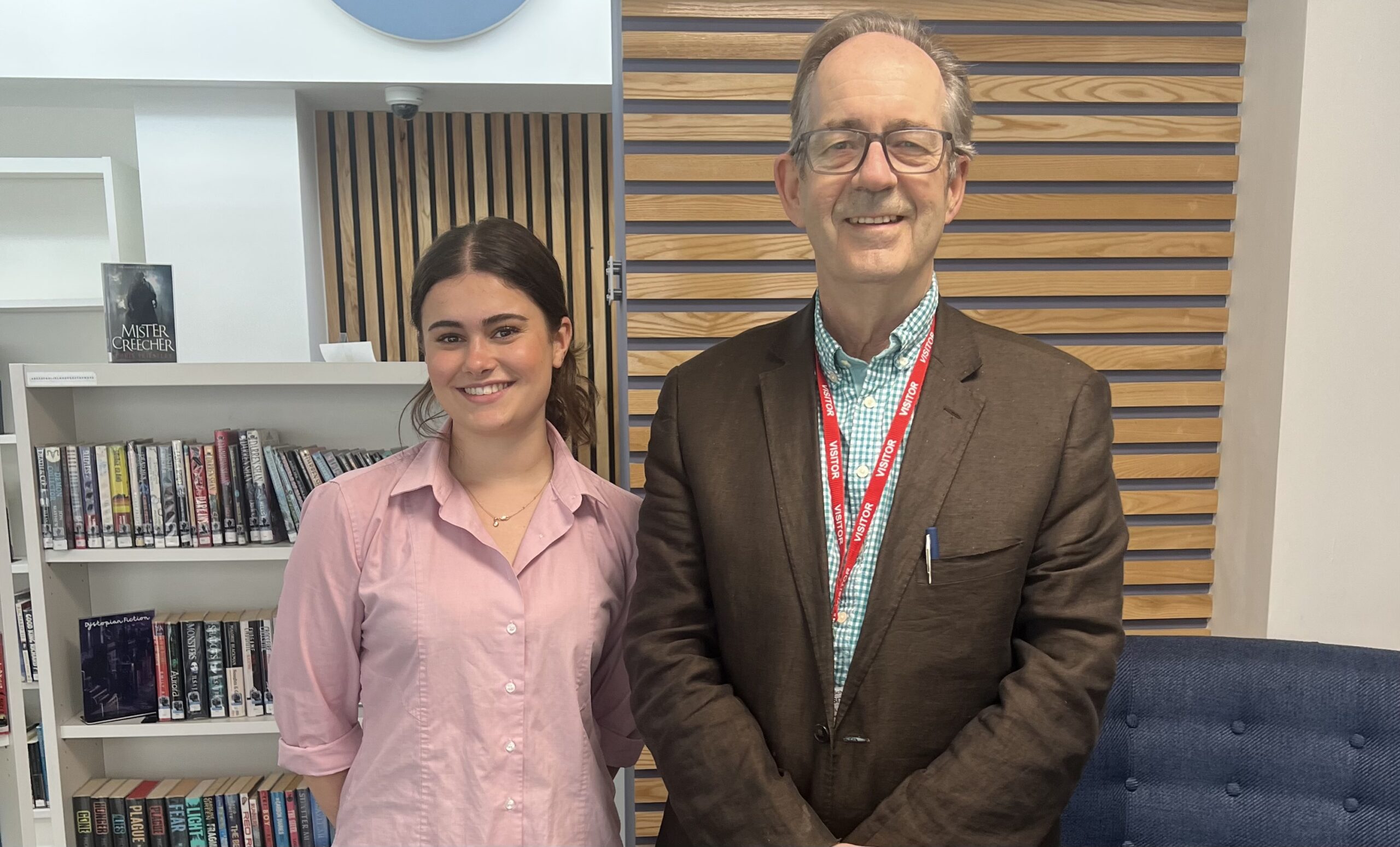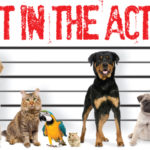Bubble Interviews: Ross Welford – Estelle L
This Monday bestselling children’s author Ross Welford, renowned for his sell-out books Time Travelling with a Hamster and The One-Thousand-Year-Old Boy, visited RHS to talk to our Junior Pupils, sharing stories and tips, and even magic tricks. I was lucky enough to snag him for a lunchtime interview, where I asked him a little about his background as an author, his books, and reading for young children. Ross provided some brilliant and interesting insight into his mind and his stories – read below to find out what he said!

Q1. Have you always had a passion for writing creatively?
No, I didn’t really ever have a passion for writing for children – or for writing anything. It’s always been a job – I seldom wrote anything just for fun or because I wanted to; writing for fun never occurred to me, it was always just something that I did… but now this starts to lead into the second question…
Q2. How do you think your career in journalism and TV production helped lead to the publication of your first book?
… Writing was always a job: from writing for my University Newspaper, and then going straight into a job as a journalist – a magazine journalist – I was always writing for work. And from there I went into a job as a television producer, where I was also writing for work. But I think what that gave me was an understanding that I could do it. I didn’t fear the blank page, which is what holds people back. You just put a bit of paper in the typewriter (because I’m that old!) and start writing something. Training and background as a journalist meant that you just have to sit there and get on with it, and that does help.
Q3. In 2019 you were accepted into the prestigious ‘Magic Circle’ – what is the best magic rick you have learnt since then?
There’s one that I do in my show, with the time-travelling book, and it doesn’t have a name because I invented it myself – we’ll call it the Time-Travelling Book Trick – which I have devised since 2019. At this point, I’m still working on it and getting it better!
Q4. In your 2016 book ‘What not to do if you turn invisible’ you named a character after H.G Wells’ Dr Kemp – has he been an inspiration for your works?
Yeah, very much! He was the first one that really popularised [science fiction] – in English anyway. Well, he didn’t write the first time travel story – that honour goes to Dickens with A Christmas Carol – but H.G Wells coined the terms the Time Machine, and the Time Traveller. And so I did time travel, and then I did turning invisible, and then I went back to reread some more Wells. The one I really wanted to do is the Island of Dr. Moreau… but its too horrific [to put into a children’s story] really.
Q5. You tackle the problem of climate change in your book ‘Into the Sideways World’: how do you approach serious world issues in your books given the age of your target audience?
I try not to scare kids. If I could fault of any sort children’s writing at the moment I think a lot of it is too scary. Given that my core audience is 10 or 11 years old, I don’t want to be loading them down with social problems. All kids these days are aware of climate change, and pollution, and wars – but I don’t want to add to their burdens; I want my books to be a bit of an escape from that.
Q6. Previously you have said that your best work was your novel ‘The One-Thousand-Year-Old Boy’ – do you still agree with this statement, and what are you so proud of?
Yes, I think it probably is. It’s my most popular one. It’s my wife’s favourite. And it’s the one that most people tell me they like the most. And I think just because it gets that balance of plot and character right – and there’s also a good villain in it. Villains are really hard to write in kid’s books, and particularly in contemporary kid’s books. And because (spoiler!) the main character comes from a thousand years ago Uncle Jasper can take that role of a villain who has Alfie’s destruction as his motivating factor.
Q7. A quote I found on your website said: “All writing is a series of decisions over what to include and what to leave out” – how do you decide what ideas to leave out when you are writing, and has this decision ever haunted you?
It’s never haunted me after publication, no, because I’ve normally forgotten it by then. But yeah, what to leave in and what to leave out is always tricky. Particularly with When We got Lost in Dreamland, writing about dreams, and One-Thousand-Year-Old boy because there is no limit to what you can write about in History. It’s like the quote ‘drama is just life with the boring bits taken out’ – all you can do is write some of the story, and hope the bits you’ve written are interesting enough to sustain your reader.
Q8. In 2020 “The Kid who came from Space” was involved in the Read Manchester programme. In a world of screens and distractions, how should we be encouraging young people to read?
I wish I knew the answer to that! Nobody knows whether it’s a cyclical thing, and it’ll come back, or whether its caused by electronic distractions, you know, phones and whatnot. That’s my own theory. And also, there are just so many other things for kids to do now that are not necessarily iPads, or phones or televisions. These days it seems there are just endless organised school activities. We seem to be terrified that our kids might be bored.
____________________________________________________________________________________
The Bubble is grateful to Ross for generously giving his time for this interview, and strongly endorses any reader to buy his entire collection of works!















Post Comment
You must be logged in to post a comment.